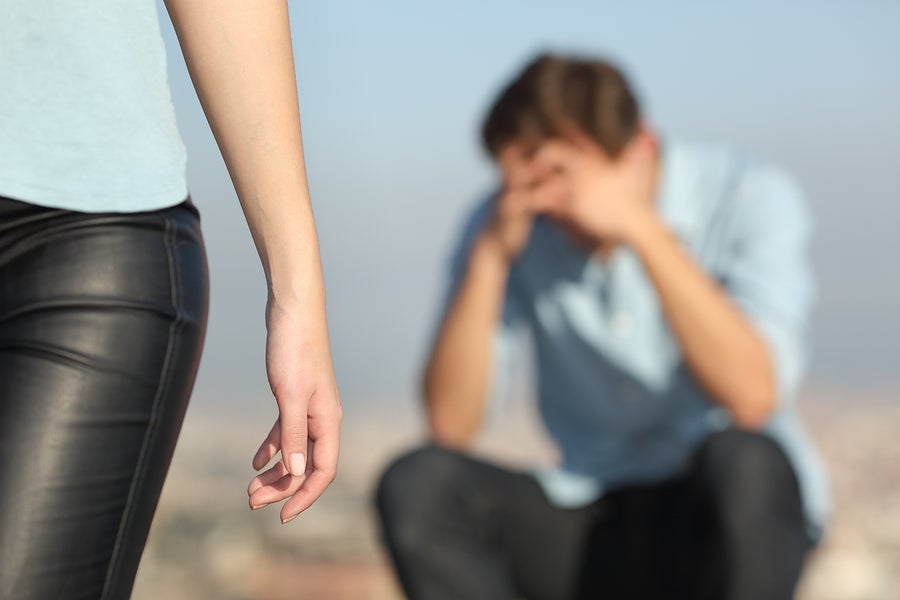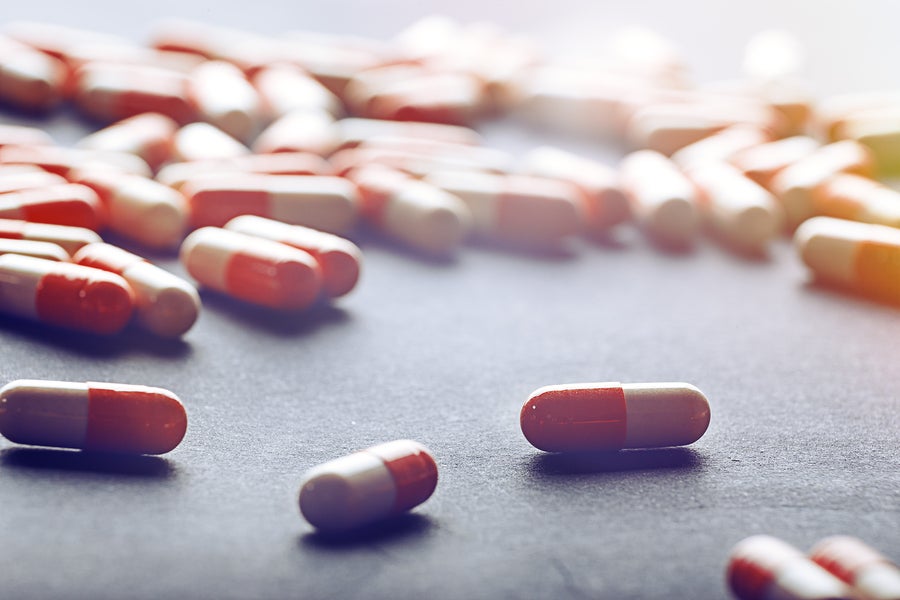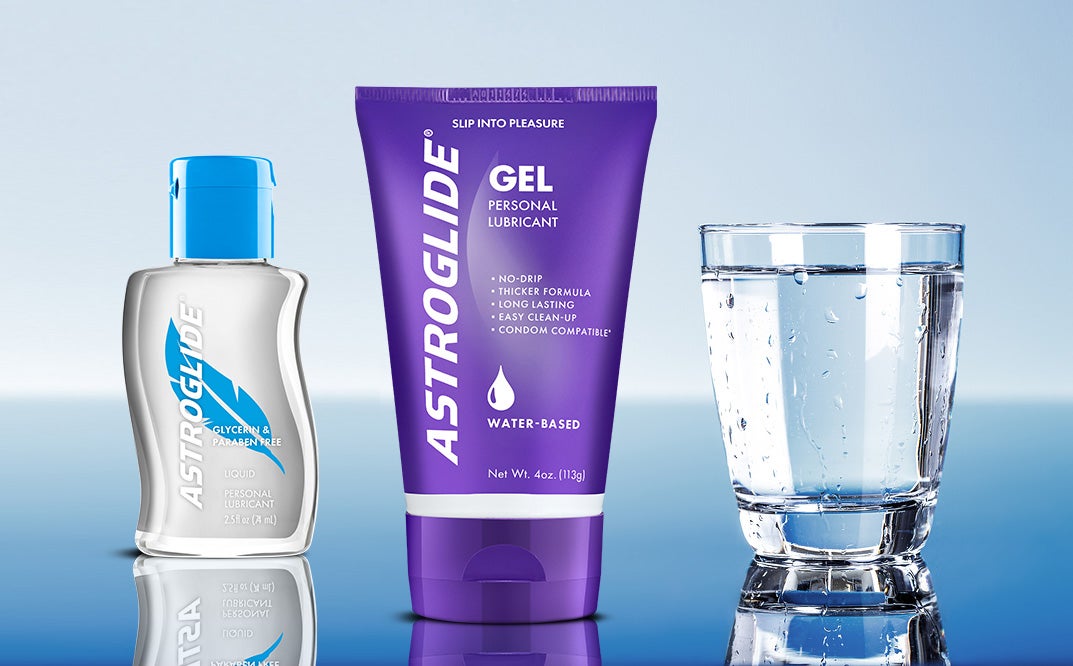9 Causes of Vaginal Dryness
Sexual Health
The causes of this unpleasant condition, however, might surprise you. To set your mind at ease, we’ve outlined 9 possible causes of vaginal dryness, along with a few recommendations on how you can alleviate the problem.
9. Lack of Arousal Can Cause Vaginal Dryness
Let’s begin with the elephant in the room — lack of arousal. A woman’s body is designed to produce a slippery natural lubrication when she is sexually aroused in order to facilitate the insertion of a man’s penis into her vagina. At least that’s how it’s supposed to work according to the textbooks we read in Sex Ed class.
In the real world, women may simply be too distracted — or perhaps need a bit more warming up than their partner does — when it’s time to have intercourse. In this case, the solution could be as simple as building up the sexual anticipation with more foreplay. Some women have other triggers, like fantasizing or naughty talk, that help them get going.

Here are three things to keep in mind:
A. Just because a woman’s not “wet”, doesn’t necessarily mean she’s not aroused (as we’ll explore in the other 8 causes of vaginal dryness below).
B. If lack of arousal is the cause of vaginal dryness, an open dialog between partners can do wonders for discovering what will stimulate sexual arousal. The main takeaway? Don’t be shy when it comes to explaining what gets your motor running.
C. If the lack of arousal is to blame for vaginal dryness but both partners still want to get to third base, using a personal lubricant is a safe, fun way to kickstart the action.
8. Emotional Stress Can Cause Vaginal Dryness
Let’s face it, everyone experiences stress to a certain degree and, in recent years, it’s been linked to an increasing number of physical problems. Many people associate a woman’s tendency to produce vaginal lubrication with her sexual arousal, and when it doesn’t happen it can cause a form of performance anxiety — akin to the stage fright that makes it hard for some guys to get an erection under pressure (as we mentioned in our previous post, Everything You Need to Know About Personal Lubricants (But Were Too Afraid to Ask)).
Performance anxiety aside, any number of outside stressors in a woman’s life can spill over into the bedroom and lead to a dry vagina. While the oxytocin released by the brain during orgasm can be a healthy form of stress release itself, it may take some serious relaxation techniques to get in the mood for sexual activity, if that’s even the goal.
Find what helps you unwind, whether it’s yoga stretches, relaxing music, a sexy massage or perhaps a favorite drink. When your mind is feeling less stressed, your body will often follow. If a lack of vaginal lubrication is causing you further stress, take matters into your own hands and use a personal lube like ASTROGLIDE Liquid to moisturize your most intimate areas. After all, you’ve got enough on your mind so why not let us take care of the lubrication until your body’s back on track?
7. Douching Can Cause Vaginal Dryness
Although less common than it once was, WomensHealth.gov says that in the United States, almost one in four women 15 to 44 years old douche on a regular basis. This is a surprising stat considering studies have not found any health benefit to douching but have found that douching is linked to many health problems, including vaginal dryness.
So this one seems simple enough, if you’re experiencing vaginal dryness yet you’re still putting douche up into your business — it may be time to ditch the douchebags!
6. Smoking and Drinking Can Cause Vaginal Dryness
Sorry party girl, if you want to keep your vajayjay moist and healthy, you’ve got to snuff the butts and chill out on the booze. Why, you ask? According to Dr. Laura Berman, PhD in her article at Everyday Health, “Cigarettes can decrease circulation, which could intensify vaginal dryness. Alcohol can decrease your sensations and lead to a dry vagina, so limit yourself to only one or two glasses of wine, especially if you plan on having sex later.”
5. Strenuous Exercise Can Cause Vaginal Dryness
Please note the importance of the word “strenuous” here, and keep in mind that regular exercise is actually a key component to maintaining your overall health — including the health of your vagina. Confused? Don’t be. Just think of how many times you’ve heard the phrase “everything in moderation” and realize that when it comes to avoiding vaginal dryness, intense rigorous exercise has been known to dry a vagina — at least immediately following said workout.
Find that healthy balance so that you’re maintaining your overall health and circulation without causing too much stress on your body.
4. Childbirth/Nursing Can Cause Vaginal Dryness

At first, it may seem surprising to hear that new mothers experience vaginal dryness. After all, the body is creating and discharging so many fluids to aid in the birthing and nursing process during this time, one might think that providing vaginal lubrication would be at the top of mother nature’s to-do list. Not so, say the experts at Parents Magazine.
“While you’re nursing, your body produces less of the hormone estrogen, which can cause the tissues in your vagina to be thinner and drier than usual. The good news is that things should get back to normal after you wean your baby. Until then, you can use a water-based vaginal lubricant.”
What if you’re not breastfeeding but still experience vaginal dryness after giving birth? This could be a temporary hormonal imbalance that your body will regulate on its own. But if you’re concerned or the symptoms persist, ask your doctor for their advice.
3. Medications and Cancer Therapy Can Cause Vaginal Dryness

Have you ever wondered why you suddenly had a dry mouth and then remembered that you’ve recently started taking a new medication? The same diuretics and beta-blockers that are helpful in lowering your blood pressure can lead to vaginal dryness, decrease your sexual desire, and make it harder to achieve an orgasm. And blood pressure meds are just one of a long list of pills whose side effects include loss of bodily moisture.
In their advice column for cancer patients experiencing vaginal dryness, Chemocare.com states “One of the most common side effects of cancer chemotherapy is generalized dryness throughout the body. In women, this will lead to vaginal dryness as well. Vaginal dryness does not mean that the woman is not aroused. The vagina may not be able, due to prior therapy, to become lubricated.”
That same post, as well as The American Cancer Society’s article, Dealing with sexual problems: Vaginal dryness, suggests using ASTROGLIDE to make intercourse more comfortable when dealing with the side effects of chemotherapy.
2. Menstruation Causes Vaginal Dryness
It’s normal for a woman’s hormone levels to dip while she’s on her period. One of the primary hormones responsible for keeping your vagina moist during menstruation is estrogen. When your estrogen levels are depleted, vaginal dryness can be an irritating side effect, especially when it comes to inserting a tampon.
One quick fix for this is to apply a small amount of personal lubricant on the applicator to make it easier to slide the tampon in. Better yet, you may want to consider avoiding tampons, which can, by their absorbent nature, dry out the inside of the vagina. Try using a pad instead, at least on days with high menstrual flow. You may want to refrain from wearing panty liners when you’re not on your period, as these can also wick natural moisture away from your most sensitive parts.
1. Menopause Can Cause Vaginal Dryness
And finally, at the number one spot, we address the most common cause of vaginal dryness, menopause. According to a report by the Mayo Clinic, “vaginal dryness is a hallmark sign of vaginal atrophy (atrophic vaginitis) — thinning and inflammation of the vaginal walls due to a decline in estrogen.”
Some doctors recommend taking oral hormone supplements or applying bioidentical estrogen creams to alleviate the symptoms associated with postmenopausal vaginal dryness. While it’s certainly wise to seek the opinion of your OB/GYN for treatment of severe vaginal dryness or atrophy, many women prefer to use a gentle lube such as ASTROGLIDE Gel or Glycerin & Paraben Free Liquid to moisturize their vagina, especially when the main concern is making sex more comfortable.
Feeling better about your situation?
So there you have it ladies, nine surprising causes of vaginal dryness along with some helpful tips on how to treat your symptoms. If nothing else, hopefully we’ve cleared up some misconceptions and set your mind at ease by explaining how common this issue really is. But wait, there’s more!
3 Bonus Tips to Avoid and Treat Vaginal Dryness

As we researched this article to share various expert opinions with you, certain advice stood out above the rest. For example, we love the practicality of Deborah Kotz’s top three tips in her definitive U.S. News & World Report article on the subject, Painful Sex: 6 Ways to Relieve Vaginal Dryness:
Stay hydrated. Drinking six to eight glasses of water a day will help keep your tissues moist, including those below the belt.
Lubricate, and lubricate some more. Many women achieve instant relief simply by using a lubricant. You may need to experiment to find one that works best for you.
Avoid personal hygiene sprays. Chemicals in these products can be irritating to delicate tissues that line the vagina.
No two women are exactly the same, so the advice in this article is meant as a broad overview of common causes for the symptoms described above. The most important thing is to never suffer in silence. Don’t be afraid to talk to your physician about this condition. For that matter, don’t be ashamed to speak with your partner or close friends if you’re experiencing discomfort.
Images are for illustrative purposes only.
